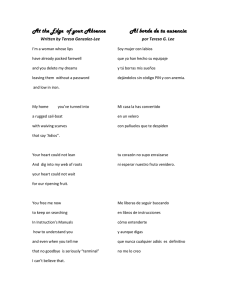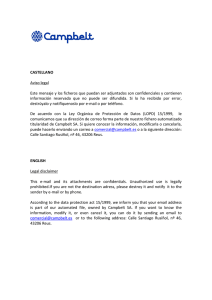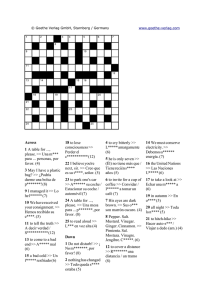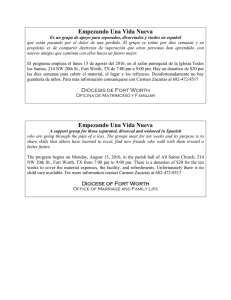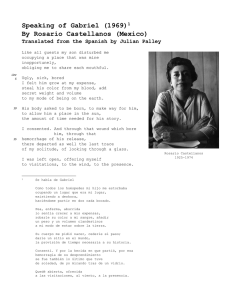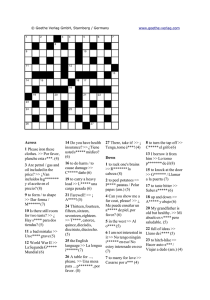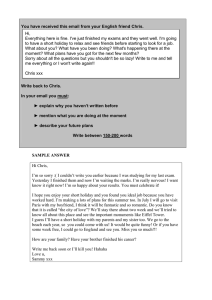Unit 2 Easily Confused Words - Universidad Laboral de Málaga
Anuncio
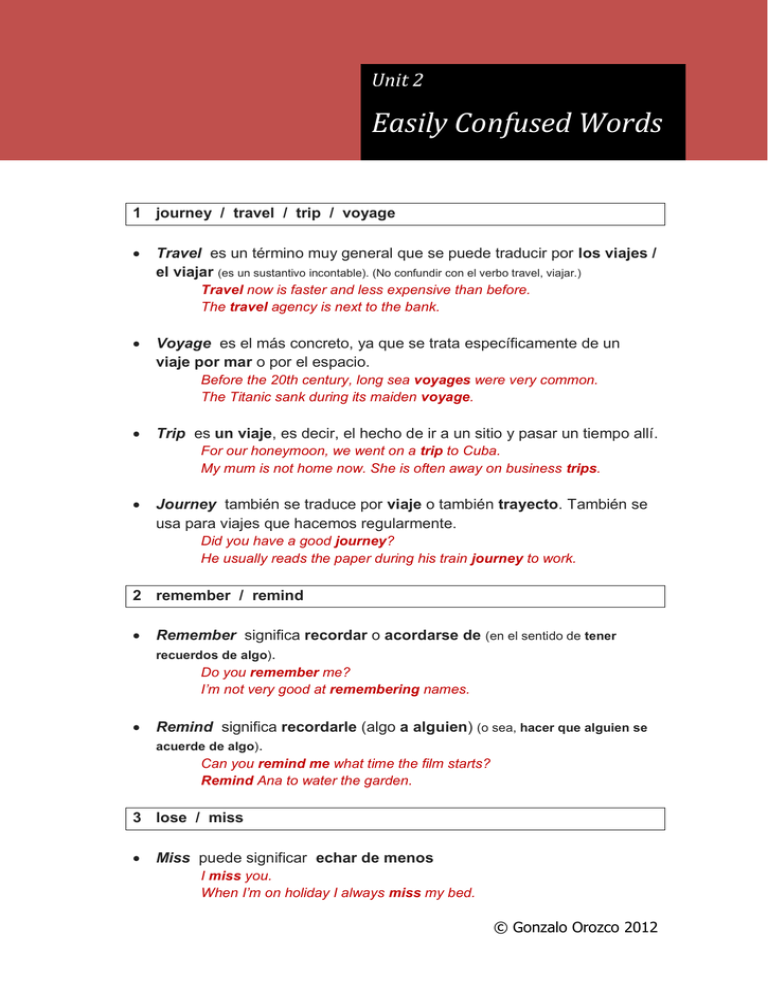
1 Unit 2 Easily Confused Words Unit 2 Easily Confused Words 1 journey / travel / trip / voyage Travel es un término muy general que se puede traducir por los viajes / el viajar (es un sustantivo incontable). (No confundir con el verbo travel, viajar.) Travel now is faster and less expensive than before. The travel agency is next to the bank. Voyage es el más concreto, ya que se trata específicamente de un viaje por mar o por el espacio. Before the 20th century, long sea voyages were very common. The Titanic sank during its maiden voyage. Trip es un viaje, es decir, el hecho de ir a un sitio y pasar un tiempo allí. For our honeymoon, we went on a trip to Cuba. My mum is not home now. She is often away on business trips. Journey también se traduce por viaje o también trayecto. También se usa para viajes que hacemos regularmente. Did you have a good journey? He usually reads the paper during his train journey to work. 2 remember / remind Remember significa recordar o acordarse de (en el sentido de tener recuerdos de algo). Do you remember me? I’m not very good at remembering names. Remind significa recordarle (algo a alguien) (o sea, hacer que alguien se acuerde de algo). Can you remind me what time the film starts? Remind Ana to water the garden. 3 lose / miss Miss puede significar echar de menos I miss you. When I’m on holiday I always miss my bed. © Gonzalo Orozco 2012 2 Unit 2 Easily Confused Words Pero miss también puede significar perder, en el sentido de perder el tren, un programa, el comienzo de la clase, etc., por llegar tarde. I missed the last bus home and I had to walk home. Hurry up! I don’t want to miss the beginning of the film. Lose es simplemente perder una cosa, extraviarla, por ejemplo porque se te ha caído sin que te dieras cuenta. I’m always losing my things! She has lost her passport. 4 stranger / foreigner Stranger significa desconocido, forastero. Don’t speak to strangers. You’re not welcome here, stranger. Foreigner significa extranjero. Benalmadena in August is full of foreigners. A foreigner is someone from another country. 5 look / see / watch See significa generalmente ver (cualquiera que no sea ciego puede ver, es algo involuntario, simplemente lo percibes con los ojos ). I was walking down the street and I saw him. Oh my God! Did you see that? Look significa generalmente mirar (es algo deliberado, es mirar con detenimiento, por alguna razón o con una intencionalidad concreta ) Look at the pictures I took on holiday. What are you looking at? Watch puede traducirse como mirar, observar o ver (generalmente personas o cosas en movimiento) Are you watching TV? Watch where you are going! You nearly stepped on my foot! Ojo: Con las películas se suele utilizar "see" y no "watch" porque nos referimos generalmente al hecho de verlas o de haberlas visto. Have you seen The Lord of the Rings? Yes, I’ve seen The Fellowship of the Ring and The Two Towers and I’m watching The Return of the King right now? ¿Sabrías decir por qué en la respuesta se usan los dos? © Gonzalo Orozco 2012 3 Unit 2 Easily Confused Words 6 achieve / manage / reach Manage to significa lograr o conseguir (son sinónimos) en el sentido de salir airoso de alguna situación difícil o complicada. The woman managed to survive for five days without food or drink. I finally managed to get to sleep. Achieve significa tener éxito en alcanzar un objetivo en particular, meta o nivel, especialmente haciendo un esfuerzo prolongado. Se puede traducir como alcanzar, conseguir o lograr. He finally achieved success. All you have achieved is to upset your parents. Reach significa alcanzar, llegar a (como sinónimo de arrive at). We will reach the summit by midday. Can you reach the top shelf? 7 expect / hope / wait Hope se traduce por esperar pero es una esperanza, un deseo; se relaciona con la parte emocional de la persona. I hope everything turns out fine. They hoped for a better life for their children. Expect también se traduce por esperar, pero es una expectativa razonable de que algo ocurra o no ocurra (no es una esperanza). Es algo mental (no emocional) relacionado con la realidad. I expect you to work hard. She is expecting a baby. Wait también es esperar pero esperar físicamente a alguien o a que algo ocurra. I’ll wait for you at the station. She is waiting to see the doctor. __________________ 1 Pues porque en el primer caso nos referimos al hecho de haber o no haber visto una película y en el segundo caso nos referimos a que estamos viéndola ahora mismo, con las imágenes en movimiento y todo eso. © Gonzalo Orozco 2012
